- ‘Lies, damned lies etc…’ - 13th February 2026
- Missing in action - 12th February 2026
- Travel news again - 11th February 2026

During 23 years with the BBC, and 39 years as a journalist (when he was trained to use clear and simple language, avoiding jargon), the careful choice of words has always been vital for our Editor, Phil Parry, and this has now been put centre stage by the huge storm which followed the Bank of England (BoE) Chief Economist, Welshman, Huw Pill, saying that people “need to accept” they are poorer and stop seeking pay increases, so pushing prices higher.
Earlier he described how he was assisted in breaking into the South Wales Echo (SWE) office car when he was a cub reporter, recalled his early career as a journalist, the importance of experience in the job, and making clear that the‘calls’ to emergency services as well as court cases are central to any media operation.
 He has also explored how poorly paid most journalism is when trainee reporters had to live in squalid flats, the vital role of expenses, and about one of his most important stories on the now-scrapped 53 year-old BBC Wales TV Current Affairs series, Week In Week Out (WIWO), which won an award even after it was axed, long after his career really took off.
He has also explored how poorly paid most journalism is when trainee reporters had to live in squalid flats, the vital role of expenses, and about one of his most important stories on the now-scrapped 53 year-old BBC Wales TV Current Affairs series, Week In Week Out (WIWO), which won an award even after it was axed, long after his career really took off.
Phil has explained too how crucial it is actually to speak to people, the virtue of speed as well as accuracy, why knowledge of ‘history’ is vital, how certain material was removed from TV Current Affairs programmes when secret cameras had to be used, and some of those he has interviewed.
He has disclosed as well why investigative journalism is needed now more than ever although others have different opinions, how the coronavirus (Covid-19) lockdown played havoc with media schedules, and the importance of the hugely lower average age of some political leaders compared with when he started reporting.

Words have different meanings to different people, and need to be chosen carefully.
It doesn’t matter how bright you are (or how technically accurate your comments are) to the ordinary person in the street if it is said that a degree of impoverishment should be accepted, you come across as cold-hearted and impervious to people’s suffering.

This should be implanted into the brains of some highly-educated ‘experts’, because it is a basic fact that I have known for many years.
This fundamental truth has been highlighted by controversial comments from Bank of England (BoE) Chief Economist, Huw Pill, who said: “… what we’re facing now is …(a)… reluctance to accept that, yes, we’re all worse off”.
Mr Pill was speaking on a podcast produced by an American law school, and stated: “If the cost of what you’re buying has gone up compared to what you’re selling, you’re going to be worse off.
![]()
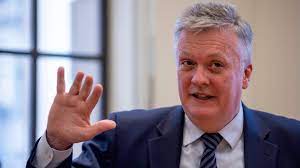
“So somehow in the UK, someone needs to accept that they’re worse off and stop trying to maintain their real spending power by bidding up prices, whether higher wages or passing the energy costs through on to customers.”
He has apologised for his remarks, but the damage was done. Mr Pill declared: “If I had the chance again, I would have used different words to describe the challenges we face”.
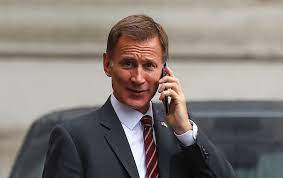
The bank is, of course, very much in the news now for other reasons too.
Last week it also caused a storm of controversy after interest rates were raised by 0.5 per cent to five per cent, and the Chancellor of the Exchequer, Jeremy Hunt MP, was forced to strike a deal to ease the mortgage pressure on householders, yet one of his advisers had said (also completely without tact) that the bank ‘needed to create a recession’ to bring inflation under control.
Mr Pill’s words were strictly correct, but they caused a huge storm which continued long after he uttered them, and formed a worrying backdrop to the mortgage agreement.
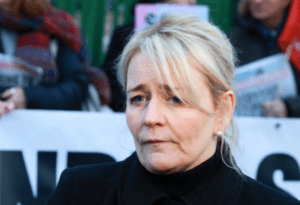
For example, the Unite union leader Sharon Graham said: “You couldn’t make it up. He jets off to America to explain to a podcast audience that being worse off needs to be accepted – while of course he isn’t.
“It is absolutely jaw-dropping that bankers like Huw Pill should lecture about sacrifice for the common good”.
However this hasn’t been the only time that tin-eared announcements have been made by bank officials.
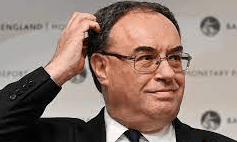
Last year, BoE Governor Andrew Bailey, was widely attacked after saying workers should not ask for big pay rises, to try to stop prices rising out of control.
Bizarrely he has been reported as criticising the comments of Mr Pill, when it is almost unheard of if they involve one of your OWN senior officials!
In the 1980s another official there declared that high unemployment was a “price we had to pay”.

Journalists at the Public Relations (PR) department in the BoE must hold their heads in their hands when these sorts of observations are made.
Very clever people can make some very stupid comments…

Details of Phil’s journalism (when correct words were all-important), during which he was gripped by the rare neurological condition Hereditary Spastic Paraplegia (HSP), have been released in a major book ‘A GOOD STORY’. Order it now!
Regrettably publication of another book, however, was refused, because it was to have included names.
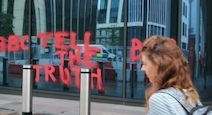 Wordcount two is soon – where Phil looks at more examples where seemingly bland phrases hide a multitude of sins when they are used.
Wordcount two is soon – where Phil looks at more examples where seemingly bland phrases hide a multitude of sins when they are used.
Tomorrow – as a new breakfast show is unveiled on Wales’ only national English language radio station, major questions are raised about its controversial head – with one former executive saying that she is “struggling”, while a listener says her new schedule is “bloody disgraceful”.
—
T









